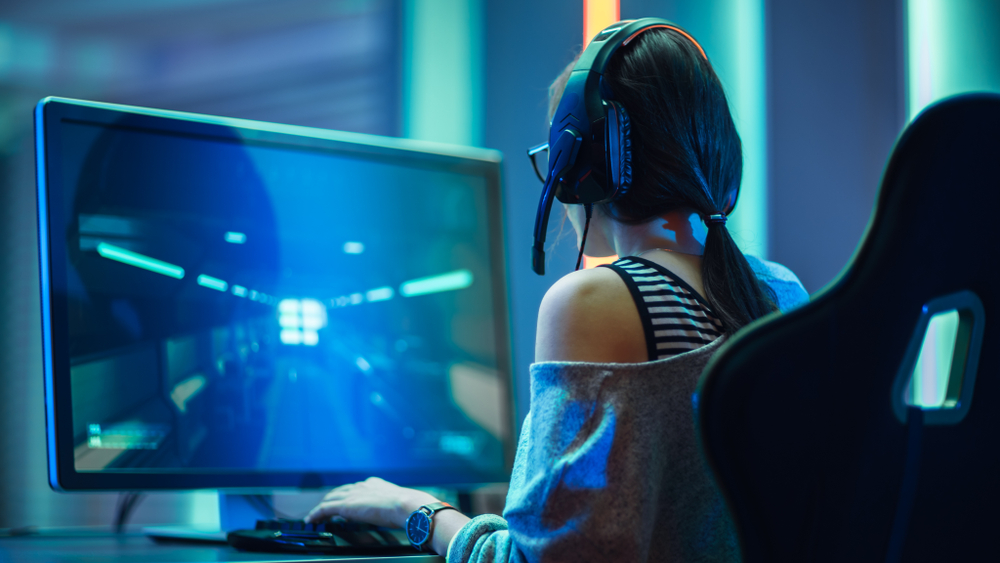US Feds Allow DRM Cracking to Preserve Abandoned Internet-Based Games
The right to repair exemption isn't the only exemption the Copyright Office and the Librarian Congress added to the U.S. Digital Millennium Copyright Act (DMCA) recently. Effective as of Sunday, abandoned games that normally required an internet connection to the original developer’s servers can now be legally preserved by official third-parties, thanks to another exemption to the DMCA.
Abandoned Games Get Another Exemption
Abandoned games that did not require an internet connection already had an exemption allowing third parties to break the games' digital rights management (DRM) in order to preserve them and allow gamers to continue playing after the original developers have ended support.
However, that exemption didn’t include games that required an online connection to work. The Copyright Office and the Librarian of Congress have now added an exemption so that third parties could also preserve this type of game. The exemption doesn’t allow just anyone to crack the DRM of old games. Only institutions that have legally obtained a copy of the game’s server code, as well as its local client code, can do so. These institutions are then allowed to break the DRM and modify the code as they see fit to preserve the games on modern operating systems.
Preserving Old Games Is “Fair Use”
The Copyright Office sees this type of game preservation as “fair use” and rejects argument that this will hurt sales. The logic is that since companies need to have already abandoned the games in question by the time this exemption can be used, there are no sales to be lost.
In some cases, preserving the games may actually be beneficial for the companies themselves in the future. For instance, in a hearing this year, James Clarendon, who worked at 2K Games in 2012 and helped developed Bioshock, faced a problem when the gaming company wanted to re-issue the same game five years later. Nobody had attempted to archive and preserve all of the game’s files in one place. 2K Games had to scour its employees’ computers to find all the missing pieces and put them all back together for the re-release. Even then, the company wasn’t able to re-issue the full original game.
As such, other gaming companies may soon realize that these preservation efforts may actually do them a favor, as in the future they could use the same code archives to launch their old titles on new platforms.
Get Tom's Hardware's best news and in-depth reviews, straight to your inbox.
Lucian Armasu is a Contributing Writer for Tom's Hardware US. He covers software news and the issues surrounding privacy and security.
-
finianfichery Does this mean I'd get to play the original Halo 3 again on PC someday or would that be disqualified since Halo MCC is existent? I'm thinkin this would have helped the El Dewrito team out a bitReply -
truerock I noticed last week that that Grand Theft Auto 1 (on Windows 10) was broken - again.Reply
Rockstar Games has abandoned it.
I like to see old games with historical merit delivered in their 100% original forms. And, also - I like to see them re-developed into native, high-resolution Windows 10 apps.
Here are some abandoned games that need some attention:
Baldur's Gate
Command and Conquer
Command and Conquer: Red Alert
Diablo
Diablo 2
Duke Nukem 3D
Far Cry
Grand Theft Auto
Mass Effect
Quake 2
Silent Hill
Silent Hill 2
Wolfenstein 3D -
Incipient "The exemption doesn’t allow just anyone to crack the DRM of old games. Only institutions that have legally obtained a copy of the game’s server code, as well as its local client code, can do so."Reply
Ahh what? This doesn't seem like it will happen too often. And if you have access to the source, it's likely you could somewhat easily remove the DRM without having to crack it? -
nukemaster Reply
The game would have to be no longer on sale to be abandoned.21442852 said:I noticed last week that that Grand Theft Auto 1 (on Windows 10) was broken - again.
Rockstar Games has abandoned it.
I like to see old games with historical merit delivered in their 100% original forms. And, also - I like to see them re-developed into native, high-resolution Windows 10 apps.
Here are some abandoned games that need some attention:
Baldur's Gate
Command and Conquer
Command and Conquer: Red Alert
Diablo
Diablo 2
Duke Nukem 3D
Far Cry
Grand Theft Auto
Mass Effect
Quake 2
Silent Hill
Silent Hill 2
Wolfenstein 3D
The following are on steam(some are updated versions).
Baldur's Gate
Duke Nukem 3D
Far Cry
Mass Effect
Quake 2
Some may be available on other platforms as well.
I am sure lots of older MMO games would have a good second life with private servers not being such a legal hassle. -
shrapnel_indie Considering they still require the one to "break" (or remove since they have access to the source code) DRM garbage that is more hassle to legit owners than it is to pirates (although pirated still has issues as you can run into infected/trojan apps easily enough, not to mention that its legal status can get you a free pair of silver bracelets, if they don't cheap out and use zip ties)... it is only a small win... if they refuse to sell the original code, as I can easily see them doing in the name of "unlocking" current IP (last I knew the current excuse of not doing so)... there is no change.Reply
